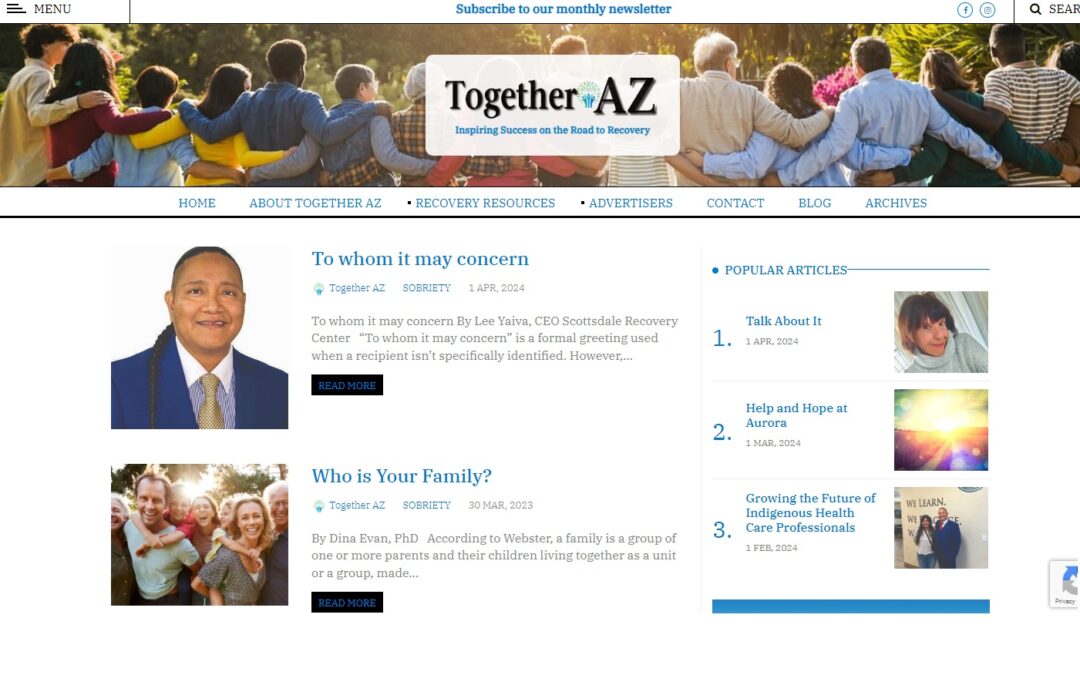“To whom it may concern” is a formal greeting used when a recipient isn’t specifically identified. However, if you are reading this, chances are this “may concern” you. This article is for individuals, friends, family members, co-workers, or anyone to whom the concern lies.
April is Alcohol Awareness Month, the most widely used drug has gained enough attention to warrant its own month. Many of us have a tendency to sweep this concern under the rug — a rug that spans the world, and is commonly evaluated by symptom control rather than treatment.
If you are wondering if there is a problem, consider yourself fortunate it has not reached its potential depths. There are several schools of thought in regard to causation and consequence, nature vs. nurture, choice vs. disease, heredity vs. environmental influence.
Who is Impacted?
The truth is, everyone is impacted by the effects of alcohol, and we have every right to be concerned. There is at least one leaf in the family tree that has fallen to alcoholism, and the manner in how we choose to respond could potentially revive a dying tree — yet the stigma can cripple growth and kill its landlord. The disgrace, shame and pain it produces are pesticides to progress.
Alcoholism is “domestic terrorism” and the national campaign, “If you see something, say something” has never been more relevant. An act of “civil war” where the act isn’t civil at all, and the disease is intent on full occupation and annihilation. We literally watch this unfold like a series on Netflix. It captivates us, saddens us, scares us, and prompts potential intervention.
What can we do?
Intervention and mediation from an eyewitness account requires little more than compassion, care and concern. “Are you OK?”
This is a common question and requires very little to intervene but still exudes compassion, care and concern. However, our response is often counter intuitive to what actually needs to be done when it involves someone we know and love who is struggling with alcoholism. We combat our own fear, anxiety and discomfort navigating a conversation we are ill equipped to have. This tends to result in enabling, avoidance and denial.
“Enabling” becomes a new word in our vocabulary of accountability that leads to an opportunity to acquire knowledge and understanding in how to appropriately address the turmoil unfolding right in front of us. The pain associated with the turmoil is evident and there are no innocent bystanders. Consider pain as a precursor to self-destructive behavior.
The depths of this pain or trauma get deeper like depth markers in a swimming pool. Nearly anyone can intervene in the shallow end, mitigating risk, liability or the loss of life. But the deeper the pain, the less equipped we become. Eventually, they are fully immersed, and it may be at this point we finally ask, “How deep is their pain?” “Am I equipped to dive in? Are the waters too deep for me to navigate?” — leading to enabling, avoidance and denial rather than pursuing the knowledge and information needed to have the difficult conversations. I invite you to dive into a pool of knowledge and information.
At Scottsdale Recovery Center, our team is filled with individuals who are more than equipped for the deep end, many of which have navigated the depths of their own pain to recognize distress and intervene while the waters are still shallow. Rock bottom is not a necessary component to achieve wellness, but recognition that it is the potential depth of pain that can be touched without drowning through trauma informed care is how we can turn great pain into even greater power!
We invite you to lift up the rug. Embrace care and compassion, empathy and patience, not just for whom the concern lies, but for yourself as a friend, family member, co-worker or associate.
Intervention is a learned response but begins with acknowledgement.
To whom it may concern might just be you! We can nurture the roots that firmly establish the opportunity to learn and grow…together.
Together, we can. Together, we will.
Originally posted on Together AZ Website & available in the April 2024 Print Edition of Together AZ

